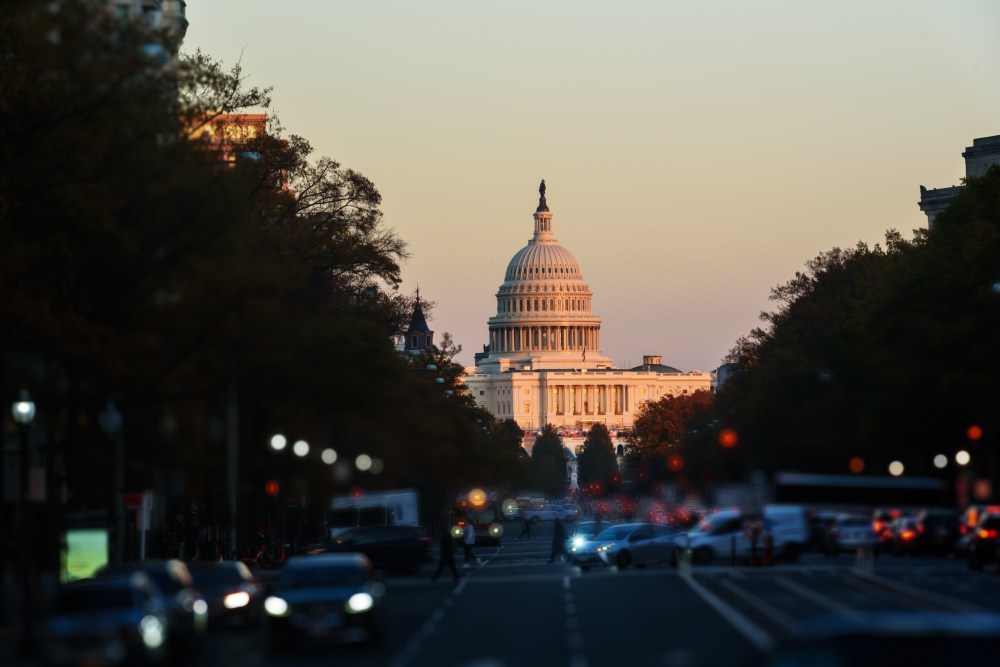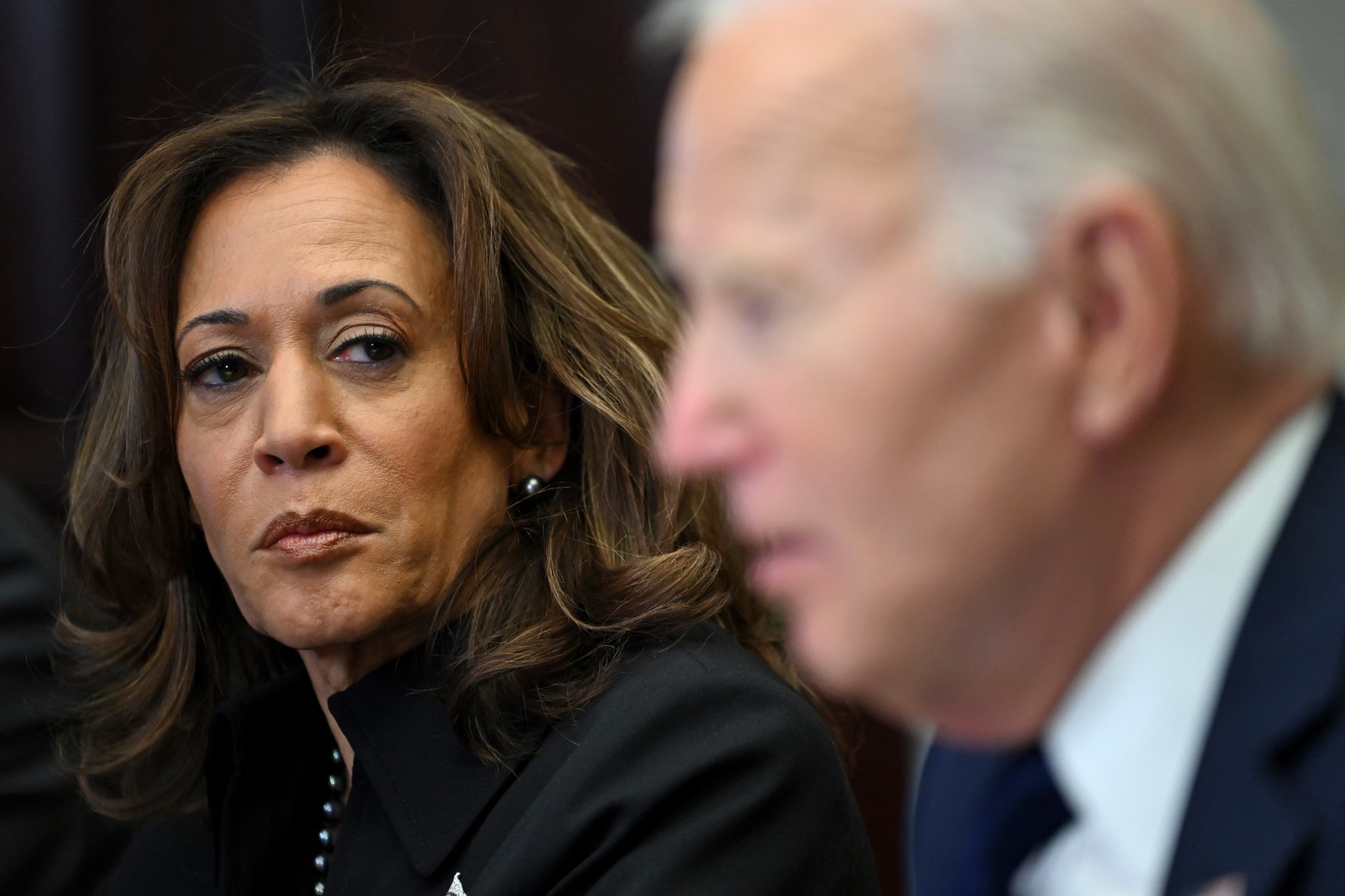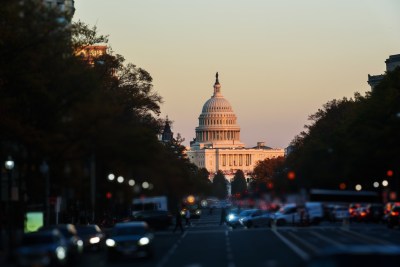Happy Shutdown! It’s Day 2 of the 2025 government shutdown, and we don’t seem to be much closer to a fix than we were yesterday. Democrats’ chief demands to stop their filibuster center on health care policies unrelated to government appropriations, and Republicans insist that the only solution is for the Senate to approve the clean continuing resolution that the House of Representatives passed weeks ago.
Despite the gridlock, some senators seem to be trying in earnest to reach an agreement. As the Senate took failed votes yesterday on the Democratic and Republican bills to reopen the government, a bipartisan group gathered in discussion on the chamber’s floor. Among its members were Republican Sens. Mike Rounds of South Dakota, John Cornyn of Texas, and Thom Tillis of North Carolina, as well as Democratic Sens. Peter Welch of Vermont, Gary Peters of Michigan, and Richard Blumenthal of Connecticut.
Reporters caught up with Blumenthal afterward and asked if he would reveal what was discussed.
“No,” he laughed. Lawmakers often avoid blabbing about what they said to their colleagues in private to avoid potentially torpedoing a deal. “There’s no point in having private conversations if you come out and begin talking about them,” Blumenthal added.
Nonetheless, he did say that there were “glimmers of hope” in the conversation. We’ll see in the next few days just how much hope there was. The Senate is not holding votes today because of Yom Kippur, but it is set to vote once again on the two parties’ funding bills tomorrow. We’ll see then if any of the talks have paid off.
—Charles
Top Stories From the Dispatch Politics Team
During a government shutdown, agencies furlough nonessential employees, so while essential services such as Social Security payments and law enforcement continue, certain functions will pause. It will be up to the Trump administration to decide what is essential and not essential. Just what the executive branch chooses to cut is weighing heavily on the minds of Republicans and Democrats as the shutdown fight comes to a climax this week. Democrats are in an especially precarious position because, while there is a risk of backlash against closures in a shutdown hitting the White House, a shutdown’s mechanics would heavily benefit President Donald Trump.
It must be difficult for a man like Pete Hegseth, a former cable news host accustomed to the positive feedback loop from producers and fans, to drop a zinger of a line and receive little to nothing back from the audience. That was the defense secretary’s experience, multiple times, as he addressed the 800 or so general and flag officers who had been hastily recalled from every post around the globe for the in-person event on Tuesday morning. Stepping away from the podium and pacing back and forth across the stage as he spoke, Hegseth looked more like an infomercial pitchman than the chief executive of the Defense Department. His intended applause lines, meanwhile, fell flat with the military leaders who had gathered at Marine Corps Base Quantico in Virginia, just a few miles south of Washington.
The U.S. dominates the world’s list of the most valuable companies. Indeed, of the top 20 publicly traded companies today by market cap, 17 are American. This reality—derived partly from policy and partly from lucky historical circumstances—is an economic boon for our country, improving the lives of Americans across the socioeconomic spectrum. That more valuable companies are founded and grown in the U.S. than in other countries is no surprise; the U.S. is the world’s richest large country, and its largest rich country. That said, the share of the world’s greatest companies that call the United States home is disproportionate, even accounting for its size and wealth. Understanding why this is the case is crucial to ensuring that it remains so.
In sports, coaches of losing teams that put up a valiant effort to tighten the score at the end of the game are fond of saying: “We didn’t lose; we just ran out of time.” That is, in effect, the message of Kamala Harris’s book 107 Days, her memoir of the shortest presidential general election campaign in history. But based on Harris’ own recounting of the 2024 campaign, it’s hard for the reader to share the conclusion that lack of time was the primary cause, or even a leading cause, of her defeat.
A collection of Democratic-aligned groups are seeking to overthrow prevailing liberal orthodoxy and transform the party into one voters might entrust with the keys to the country in the wake of President Donald Trump’s commanding 2024 reelection victory. These organizations are producing policy proposals capable of serving as the basis for a legislative program, conducting polling and focus groups to provide insight into voter sentiment, and hosting events and sharing memorandums with party insiders and strategists to sell their recommendations. It’s all part of a comprehensive bid to discourage base politics and make political pragmatism more palatable for candidates and incumbents to adopt. Adam Jentleson, Searchlight Institute’s founder, said his think tank’s goal is to “create a little bit more breathing room for Democrats to say what they really think.”
Enjoying our Dispatch Politics Roundup? Consider forwarding this article to someone you know who likes independent, fact-based journalism.











Please note that we at The Dispatch hold ourselves, our work, and our commenters to a higher standard than other places on the internet. We welcome comments that foster genuine debate or discussion—including comments critical of us or our work—but responses that include ad hominem attacks on fellow Dispatch members or are intended to stoke fear and anger may be moderated.
With your membership, you only have the ability to comment on The Morning Dispatch articles. Consider upgrading to join the conversation everywhere.